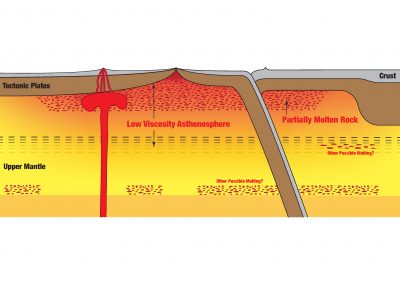Movie production is the process of creating a film from start to finish. This includes everything from developing the initial concept and writing the script, to filming and post-production, to distribution and marketing. And let’s not forget, it takes a ton of work, time, and effort from a whole team of talented people to bring a movie to life.
So, why is movie production so important? Well, movies have the power to transport us to different worlds, introduce us to new characters, and tell stories that can change the way we think and feel. They’re a form of art, and the process of making a movie is just as important as the final product.
The purpose of this article is to give you an overview of the movie production process and provide some tips and insights along the way. Whether you’re an aspiring filmmaker or just curious about the behind-the-scenes magic, you’ll find something in this article that’s useful.
Now, let’s give you a quick rundown of what you can expect from the movie production process. It’s divided into several stages, including pre-production, production, post-production, and distribution and marketing. In each stage, different tasks are carried out to bring the movie from an idea to a finished product.
So, get ready for a crash course in movie production! Let’s dive in!
What is Pre-Production?
Okay, let’s talk about pre-production, the first stage of movie production. This is where all the preparation for filming takes place, and it’s crucial to ensure the filming process goes smoothly. It all starts with the process of development, which includes:
- Concept development: This is where the movie’s overall idea is established. It’s important to have a solid concept in place before moving forward with the rest of the process.
- Script writing: Once the concept is in place, it’s time to write the script. This is where the story is fleshed out, and the dialogue is written.
- Storyboarding: Storyboarding is the process of creating visual representations of each scene in the movie. This helps the filmmakers visualize the film before filming begins.
Next up, we’ve got pre-production planning
- Budgeting: The budget is one of the most important parts of pre-production. It determines how much money is available for the film and how it will be allocated.
- Scheduling: The schedule is created to ensure that all the necessary tasks are completed on time and within budget.
- Casting: Casting is the process of finding actors to play the characters in the movie. It’s important to choose the right actors to bring the script to life.
- Location scouting: Location scouting is the process of finding the right locations to film the movie. This includes finding the right settings, lighting conditions, and any other necessary elements.
Finally, there’s the equipment preparation. In this part of pre-production, all the necessary equipment, such as cameras, lights, sound equipment, and special effects equipment, is gathered and made ready for filming.
That’s a quick overview of pre-production! As you can see, there are a lot of tasks that need to be completed before filming can begin. But with proper planning and preparation, the filming process can be a smooth and enjoyable experience.
The Production Stage
Alright, now let’s move on to the next stage of movie production: filming! This is where all the hard work from pre-production comes to life, and the movie begins to take shape. It begins with the filming process, which involves:
- Lighting: Proper lighting is essential for creating the right mood and atmosphere for each scene.
- Sound: Capturing high-quality sound is just as important as capturing high-quality visuals.
- Camera work: Camera work includes selecting the right shots, camera angles, and movements to bring the script to life.
It also includes vital on-set management processes:
- Direction: The director is in charge of overseeing the filming process and making sure everything is going according to plan.
- Coordination with cast and crew: It’s important to have good communication between the cast, crew, and director to ensure that everyone is on the same page.
- Monitoring progress: The progress of filming must be monitored to make sure everything stays on track.
It’s all topped off with special effects that can enhance the overall look and feel of the movie, but they should be used sparingly to keep the film grounded in reality.
Filming is the stage where all the hard work from pre-production comes to life. Proper planning, good communication, and attention to detail make the filming process a truly enjoyable experience.
And there you have it, a quick overview of filming in movie production. It’s a crucial stage that requires a lot of hard work and attention to detail, but it’s also the stage where the magic really starts to happen!
The Post-Production Phase
Awesome, we’ve made it to the third stage of movie production: post-production. This is where all the pieces of the movie are brought together to create the final product.
- Editing: Editing is the process of assembling the raw footage into a cohesive story. This includes cutting and rearranging scenes, adding special effects, and adjusting the sound and music.
- Sound design: Sound design involves adding and manipulating sound effects, music, and dialogue to create the desired atmosphere and mood.
- Color correction: Color correction is the process of adjusting the colors in the film to ensure that they look consistent and professional.
- Visual effects: Visual effects can be added to enhance the overall look and feel of the film. This includes adding special effects, such as explosions or supernatural elements, to the raw footage.
- Quality control: Quality control is an important step in post-production that ensures that the final product meets the desired standards.
Post-production is a crucial stage in movie production, as it’s where the raw footage is transformed into a polished, finished product. With careful attention to detail and a focus on quality, post-production can help bring the film to life in ways that were never thought possible.
Distribution & Promotion
Finally, we’ve arrived at the last stage of movie production: distribution and promotion. This is where the movie is made available to audiences, and it’s where the filmmakers get the chance to share their hard work with the world.
- Distribution: Distribution is the process of making the movie available to audiences. This can be done through various channels, such as theaters, DVD/Blu-ray releases, streaming services, or even through special events.
- Marketing and promotion: Marketing and promotion is the process of getting the word out about the movie and generating buzz. This can include creating trailers, posters, and other promotional materials, as well as utilizing social media and other marketing channels to reach audiences.
- Screenings and events: Screenings and events are a great way to generate buzz and get audiences excited about the movie. This can include private screenings, film festivals, and other special events.
Distribution and promotion are the final stages of movie production and are just as important as the other stages. With proper planning and execution, distribution and promotion can help ensure that the movie reaches the widest possible audience and generates the buzz that it deserves.
Budgeting and Financing
Budgeting and financing are crucial components of movie production. With limited resources and high costs, it’s important to have a solid plan for securing funding and managing costs. In this section, you can discuss:
- Budgeting: How much should I pay for video production? How about all of the secondary expenses that come with running a set? To answer all of these questions, and more, you’ll need a well-constructed budget for your movie production. It is important to clearly understand all the expenses involved in producing a movie, from pre-production to post-production. This includes costs for cast and crew salaries, equipment rental, location scouting, and marketing.
- Financing options: There are a number of ways to finance a movie, including crowdfunding, private investment, grants, and studio deals. Each option has its own benefits and drawbacks, and it is important to carefully consider the pros and cons of each when deciding on the best financing option for your movie.
- Cost management: Managing costs effectively is key to ensuring that your movie production stays on budget. This includes finding ways to minimize costs, such as negotiating with suppliers and streamlining processes, as well as maximizing the use of available resources.
With careful planning, attention to detail, and a focus on cost management, you can ensure that your movie is produced on time, on budget, and to the highest possible standards.
Career Opportunities in Movie Production
Thinking of getting into the movie business in a producer role?
Movie production is a dynamic and constantly evolving industry that offers a wide range of career opportunities. In this section, you can explore the different roles and responsibilities of professionals working in movie production, including:
- Producers: Producers play a crucial role in movie production, acting as the project manager, and overseeing the budget, schedule, and overall production. They are also responsible for securing financing and managing relationships with cast and crew.
- Directors: Directors are responsible for leading the creative vision for the movie, communicating with the cast and crew, and ensuring that the final product meets the desired standards. They work closely with the producer and other key members of the production team to bring their vision to life.
- Cast and Crew: Movie production is a highly collaborative process, and there are many professionals working behind the scenes to bring a movie to life. This includes cinematographers, editors, sound designers, special effects artists, and many others. Each role is critical to the success of the movie, and together they create a dynamic and exciting industry filled with opportunities for growth and advancement.
Whether you’re interested in producing, directing, or working behind the scenes, movie production offers a wide range of career opportunities for professionals of all skill levels and backgrounds. You can easily find your place in this dynamic and exciting industry with hard work, dedication, and a passion for storytelling.







